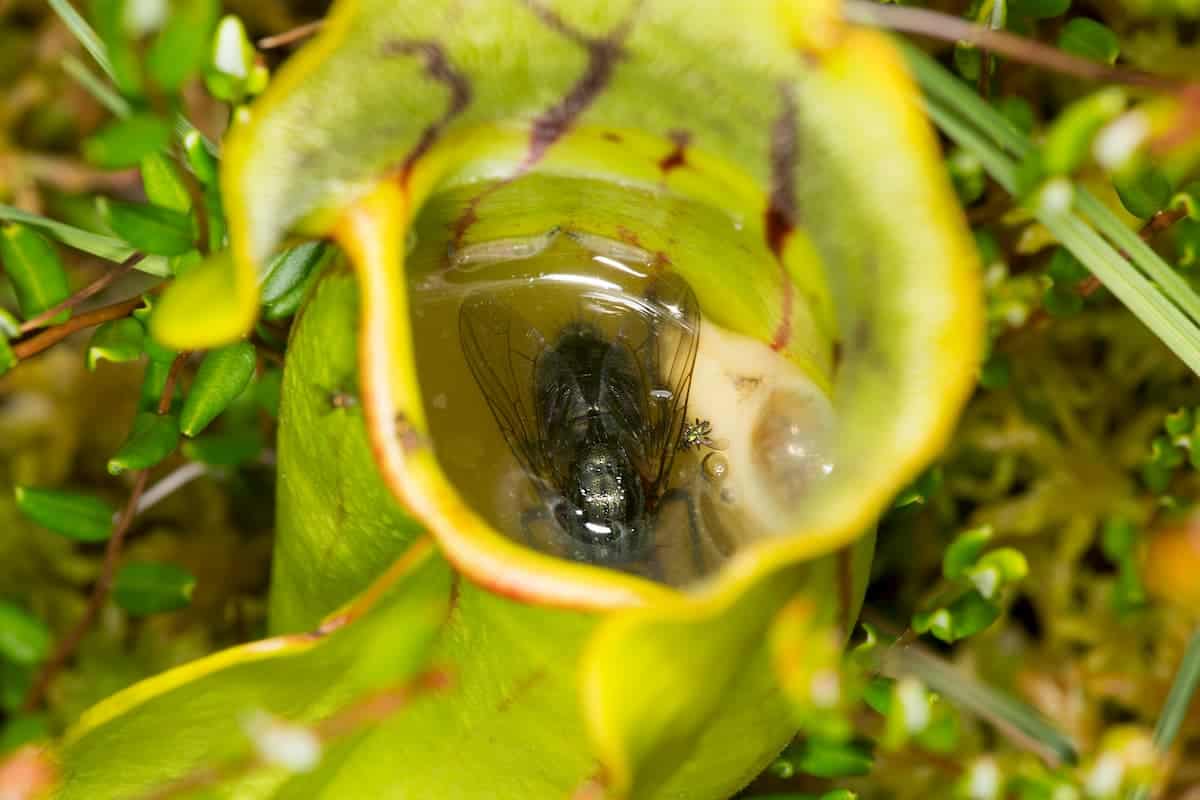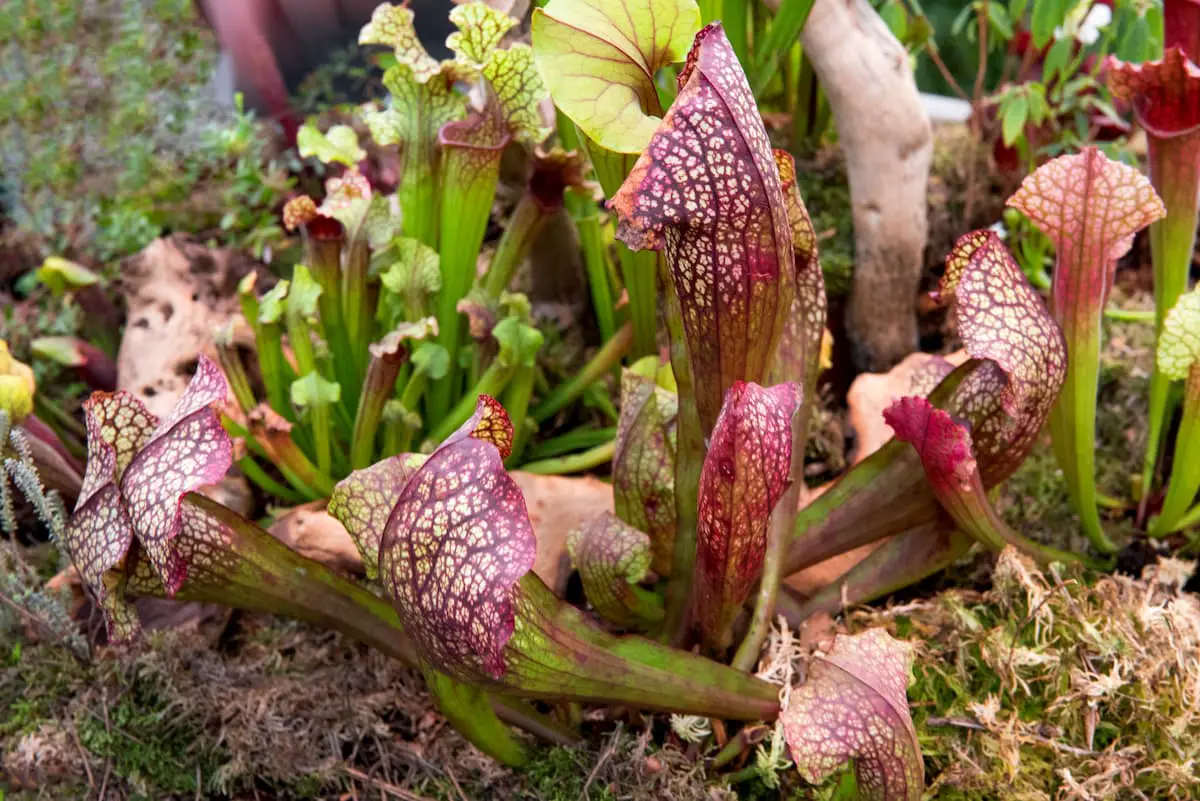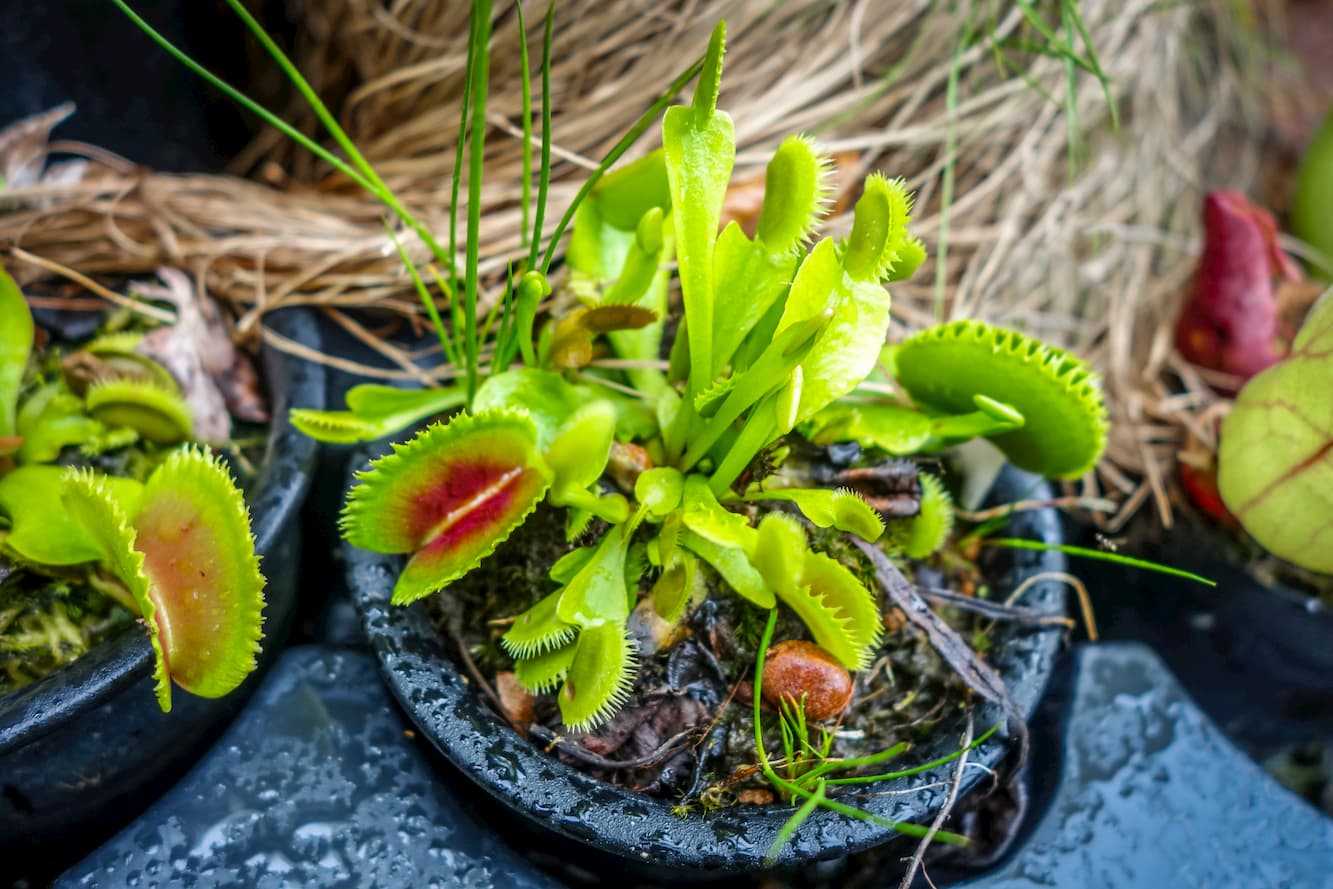Normally with plants, you will just need to fertilize every so often and the plant manages to feed itself without much concern or help. For carnivorous plants, this needs to be more thought out, especially if you keep them indoors, outside of their native environment.
How Often do you Feed Carnivorous Plants? Depending on the plant you are raising this could be a variable answer. On average you want to feed a carnivorous plant every third month while indoors as they have less access to food then if they are outdoors.
Now we can look at how often carnivorous plants eat along with what happens should you overfeed them. We will cover some additional care in feeding and additionally whether you really even need to feed your plants on a schedule.
How Often do Carnivorous Plants Eat?
In the wild a carnivorous plant will feed as food becomes trapped, meaning they can go long periods without feeding naturally.
Carnivorous plants do not need to feed daily as they take energy to process food. Depending on the plant, in fact, they may need only two or three feedings a year for them to live and thrive.
If they have the chance to catch more, they will, and benefit from this natural “fertilizer”.
For a real life example, on a Venus Flytrap you can provide each plant about three bugs per feeding, spacing these feedings out to every 3-4 months. This will help maintain a thriving and strong, well developed plant.
What Can I Feed Carnivorous Plants?
There is always the option to feed them live bugs you catch around the house, but you should also consider using freeze-dried insects as this allows for easy feeding and storage.
It is suggested to crush or grind the food into small pieces or powder for better absorption on Sundews and other plants like the Butterworts. Whole pieces are fine for pitcher plants. Carnivorous plants do not need to feed every day.
Best Bugs For Feeding
- Bloodworms
- Crickets
Can you Overfeed Carnivorous Plants?
The answer is yes, but not as simple as that either. A plant like the Venus flytrap can only catch so many bugs before each of its traps will die off, and each trap, once it has caught a bug, won’t open until ready to be used again.
Within the pitcher plant family, you can catch multiple bugs in the digestive system and they will be processed also.
The main way people tend to damage their carnivorous plants is in deciding to fertilize them which ends up damaging and many times killing the plant off. This is very simple to accidentally accomplish on a carnivorous plant as they don’t need any fertilizer in almost all cases.
Can Carnivorous Plants Live Without Bugs?
If your plants are vibrant and healthy, they more than likely don’t need to be fed consistently. They will be able to live well without you giving them bugs which may impact their growth curve, but that’s about it.
The other thing that most people caring for their plants don’t track is the ability of their plants to catch and digest food all on their own. Regardless of your personal belief that you have no bugs in your house there are plenty that is out and looking around during the night that your plant may be eating already!
Bottom Line
Taking care of your carnivorous plant is a super exciting and rewarding experience that can easily be managed by someone of any experience level. This makes them an outstanding plant for home use and to provide a plant which also helps manage pest issues in your house. No one likes flies in summer, but everyone loves to leave their doors open, why not give yourself a solution to this madness?
Hopefully, the post helped you learn a little more about plant feedings and care, if I made a difference please consider subscribing and sharing this post on your social media as every little bit helps a little blog to get more exposure! Leave me a comment about your plant care and let me know if I missed something that is important!




Leave a Reply